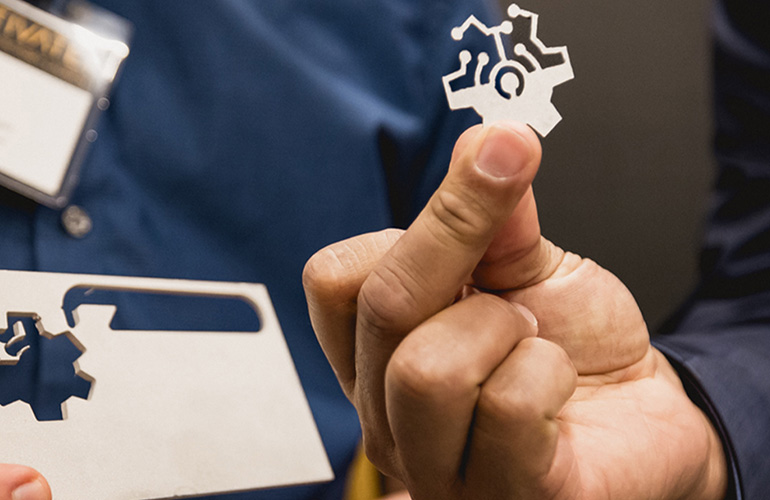|
Listen to this article |

The Robotics Factory is dedicated to creating, accelerating, and scaling Pittsburgh-area startups. | Source: Robotics Factory
The Robotics Factory has accepted five companies to its Scale Residency program. The Innovation Works and Pittsburgh Robotics Network initiative is dedicated to creating, accelerating, and scaling robotics companies in the Pittsburgh region.
ESTAT Actuation, KEF Robotics, Thiopoly, Thorne Baby, and Piximo make up the organization‘s first residency cohort. The Robotics Factory will provide these five companies with one year of access to its facilities in the Tech Forge building in Lawrenceville, Pa., part of “Robotics Row.”
“The Scale program helps these companies grow from concept to commercialization,” stated Kevin Dowling, managing director of the Robotics Factory. “Our staff of engineers and entrepreneurs offers guidance to these budding startups, all of which have found a fit in their respective markets and further solidify this region as a global robotics hub.”
In addition to the Robotics Factory’s facilities, the organization will provide hands-on support, access to cutting-edge tools, grant funding, connections to local manufacturers, and educational resources to support rapid prototyping and production. Pittsburgh is home to more than 100 robotics companies, so the participants will have access to a wide range of local resources, noted the organization.
 Learn from Agility Robotics, Amazon, Disney, Teradyne and many more.
Learn from Agility Robotics, Amazon, Disney, Teradyne and many more.
Meet the Start program’s pilot projects
The Robotics Factory’s pilot cohort of the Scale program covers a wide range of capabilities. ESTAT Actuation creates electro-adhesive clutches and brakes that it said are 10 times lighter, 10 times more compact, and 1,000 times more efficient than conventional hardware. The company spun out from Carnegie Mellon University in 2019.
KEF Robotics, the second startup in the program, provides state-of-the-art autonomy software to fly pilotless aircraft. Founded in 2018, the computer vision company said its algorithms use cameras to ensure autonomous flights across various platforms.
Next, Thorne Baby produces a play yard that opens automatically with no assembly required. The company created its product for easy in-home mobility and on-the-go portability.
Thiopoly develops an accurate physical library of medications to ensure highly accurate dispensing systems. Finally, Piximo constructs mobile minimarts operated by remote drivers and provides production scalability.
While in the residency program, company employees can get training in designing products for manufacturability by creating functional prototypes. The Robotics Factory will connect them with suitable manufacturers in the Pittsburgh region, enabling them to expand their supply chains and enhance production scalability.
The Scale residency program is funded through a $63 million Build Back Better Regional Challenge grant awarded to the Southwestern Pennsylvania New Economy Collaborative. The Robotics Factory also runs the Accelerate program, which aims to foster the next generation of robotics startups in Pittsburgh.
